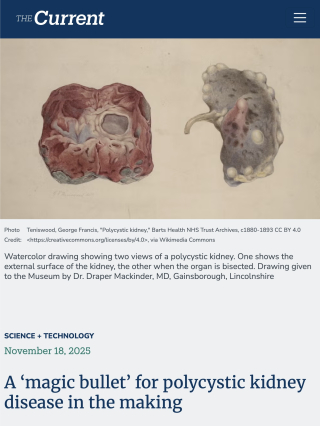News release about our study on developing a new class of monoclonal antibody drugs for polycystic kidney disease therapy. These dimeric-IgA class antibodies have the ability to target to cyst lumens in PKD.
A ‘magic bullet’ for polycystic kidney disease in the making
Polycystic kidney disease (PKD) is a debilitating hereditary condition in which fluid-filled sacs form and proliferate in the kidneys. Over time, the painful, growing cysts rob the organs of their function, often leading to dialysis in advanced cases There is currently no cure.
Researchers at UC Santa Barbara, however, have proposed a cyst-targeted therapy that could interrupt the runaway growth of these sacs by leveraging the target specificity of the right monoclonal antibodies — lab-made proteins that are used in immunotherapy.
“The cysts just keep growing endlessly,” said UCSB biologist Thomas Weimbs, senior author of the study published in the journal Cell Reports Medicine. “And we want to stop them. So we need to get a drug into these cysts that will make them stop.”


